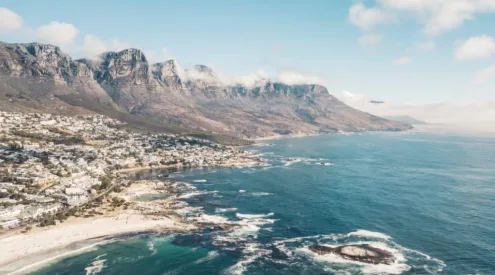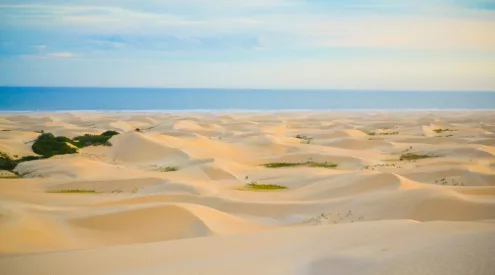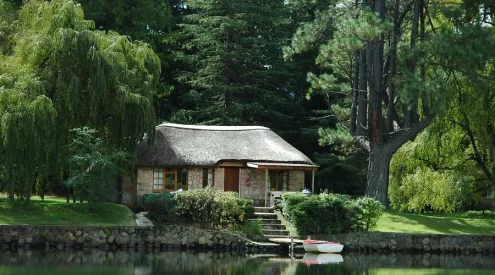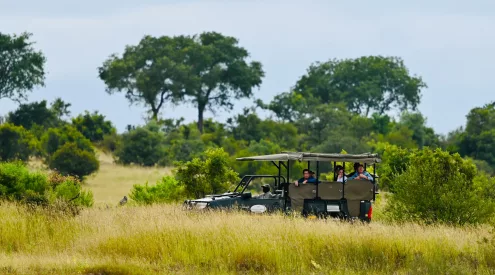In South Africa 84% of plastic waste is dispersed into the oceans or into overflowing landfills. Often light plastics, such as wrappers and packets like those for chips, sweets and other junk foods end up in storm drains or canals and eventually end up in the ocean. Only 16% of plastic in South Africa gets recycled. Throwing plastic into a bin does not dispose of it but rather move it to a place that will negatively harm our natural environments and ecosystems. Here are some ways you can reduce your plastic waste and your impact on the environment.
1. Reusable shopping bags
In today’s age there really is no excuse for buying plastic shopping bags at the check-out counter. There are ample reusable bags available for purchase, from cotton bags to recycled PET bags, to baskets or you could even create your own from scrap fabric. These may set you back R19 but in the long run you will not only be saving yourself cash but decreasing your plastic consumption at the same time. Keep reusable bags in the boot of your car, that way you cannot forget to bring them along for your next trip to the grocery store.
2. Opt for plastic-free packaging
Whether it’s loose fruits or vegetables, any contribution to choosing produce that is plastic-free is a step in the right direction. Again, bringing your own reusable bags for these items to be weighed in can also help reduce your plastic waste. In Cape Town there are various plastic-free shopping experiences, for instance at Shop Zero and Nude Foods. You bring in your own packaging like glass jars, containers and fabric or brown paper shopping bags and fill them with produce that you pay for by weight.
3. EcoBricking
A brilliant way to upcycle your non-recyclable plastic is through EcoBricks. Essentially all you need to make an EcoBrick is a 2L plastic bottle, a wooden spoon and non-recyclable / non-biodegradable plastic. The aim is to fill the plastic bottle until it is ‘unsqueezable’ and then to drop it off at collection points. The EcoBricks are then used to build classrooms, homes, sustainable parks and structures. If you have any 2L plastic bottles lying around, then definitely make an EcoBrick out of it. For more information about EcoBricks, what products are considered non-recyclable and for drop-off points across South Africa, read here.
4. Reusable coffee cups
Coffee cups are a single-use plastic item as the inner lining and lids are plastic, therefore making them non-recyclable. Globally, 100 billion single-use cups are thrown away annually. With the rapid growth of coffee culture in South Africa and over 100 roasteries in operation, the need to use reusable coffee cups is prolific now than ever before. In addition to saving the planet, most coffee outlets give you a discount on your coffee of choice if you bring along your own reusable cup.
4. Switch your plastic bottles and packaging to glass alternatives
Instead of reusing plastic water bottles that release micro particles and toxins into the water that you are drinking, opt for a sustainable glass bottle that keeps your water clean and toxin-free. Swap out plastic packed items, like cleaning products, shampoo and conditioner containers and liquid soap dispensers for glass containers. Producing a 1L plastic water bottle uses up to 26L of water and up to 29L to produce a 1L bottle of bottled water. Do your body and the environment a favour and swap out the plastic for glass.
5. Refuse the single-use straws and cutlery
Whenever you go out to eat and you come into contact with a plastic straw, knife, fork or spoon: refuse refuse refuse. Plastic straws and cutlery are one of the biggest contributors to oceanic pollution and are completely unnecessary. If you are going to be getting take-aways, ask for the cutlery to be left behind and use your own knife and fork. If you know you are going to buy a ready-made meal, for lunch / dinner, leave the plastic offerings at the till and pack your own cutlery instead. With a multitude of straw alternatives, including glass, paper and bamboo straws, there is no need to use a plastic straw that is only good for creating pollution. Most of the plastic alternatives come in a small case that makes it easy to keep on you at all times.
6. Swap your plastic toothbrush for a bamboo alternative
Plastic toothbrushes are made with chemicals that are harmful to your body. Created from a combination of plastics, crude oil and rubber, these everyday items can contain phthalates (chemicals found in PVC plastics) that could negatively impact your health and the environment. Bamboo toothbrushes are an excellent alternative as they are biodegradable and compostable. The bristles, along with your old toothbrush, can be placed in your EcoBrick.
7. Leave cling wrap off your shopping list
Bees’ wax or cloth wrap can be used as an alternative to cling wrap to seal in the freshness of your food. Alternatively you can purchase glass containers to store your left overs in the fridge. Plastic cling wrap is an unnecessary and environmentally damaging product that can be easily replaced for a sustainable alternative. Cloth wraps are perfect for lunch boxes, easily reusable and add beautiful colours to your lunch time eating experience.
8. Compost your food waste
By composting food waste, you reduce the amount of plastic bags that are collected by garbage disposal on a weekly basis. This means less plastic ends up in landfills and your garden will thrive as a result of the nutrient-rich compost that is created. Vegetable and fruit cuttings and pulp, corn cobs and husks, egg shells, grains, coffee ground and filters, tea bags and anything made from flour can all be composted. Meats and dairy products however cannot. Keep a big jar near your bin so that these scraps can be placed inside before being put outside onto the compost heap. That way you avoid throwing away compostable food.
View this post on Instagram
9. Stop purchasing chewing gum
Most chewing gums are made out of a synthetic, rubbery product called polyisobutylene that is mixed with plasticisers and materials to make the mixture chewable. When thrown on the ground, chewing gum can get stuck to many small animals, such as birds. The birds then struggle to remove the sticky plastic and it can get caught in their beaks, which could result in suffocation, starvation or rotting of their feet if stepped in. Not to mention the plastic and coated packaging chewing gum comes in.
10. Reduce, reuse, recycle
Being a conscious consumer and understanding the detriment of plastic pollution to your body and on the environment is very important. Although these small changes may seem insignificant, in the bigger picture, any small change will help our planet be a better place. Plastic pollution is a major threat to the environment which means it is a major threat to us. For information on where to purchase any of these products, visit this website and have your products delivered right to your door.
Image source: Pixabay


















